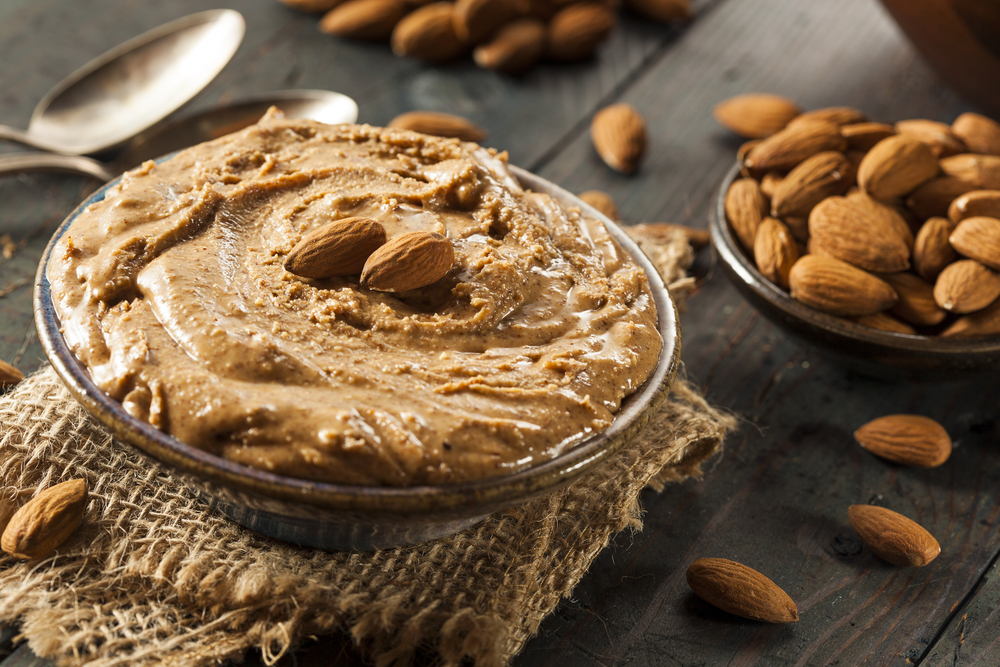Almond butter is a food paste made from almonds. Almond butter may be crunchy or smooth, and is generally “stir” (susceptible to oil separation) or “no-stir” (emulsified). Almond butter may be either raw or roasted, describing the almonds themselves prior to grinding. It is recommended that almond butter be refrigerated once opened to prevent spoilage and oil separation. It’s considered a good source of riboflavin, phosphorus, and copper, and an excellent source of vitamin E, magnesium, and fiber. Almond butter also provides dietary protein.
Krishana Enterprises is a leading supplier of Almond butter in India, which is an alternative to peanut butter for those with peanut allergies or who dislike the taste of peanuts. Almond butter contains significantly more fiber, calcium, potassium, iron, and manganese than peanut butter, and about half the saturated fat, although a slightly higher total fat content.

Small batches of almonds are created in order to ensure quality, freshness as well as flavor. The nuts are then roasted slowly in order to release the maximum essential oils so that the taste is maximized. It is then grounded to the ideal consistency and texture. It is then packed and exported.
Almond Butter benefits
- Almond butter is a good source of the healthy monounsaturated fats our bodies need. These fats are associated with lowering the risk of heart disease.
- Eating almonds offers antioxidant action from Vitamin E and helps lower cholesterol.
- A small serving of almond butter contains a generous amount of magnesium–which boosts heart health by promoting the blow of blood, oxygen, and nutrients–and potassium, important for good blood pressure and heart health.
- Eating almond butter helps keep blood sugar stable (unlike, for example, carbohydrates that may cause blood sugar to increase and crash).
- The low-glycemic index and protective antioxidants of almonds makes almond butter a wise choice for those at risk from diabetes because they don’t cause a sharp increase in blood sugar and insulin when consumed; and they even seem to help when you eat them along with foods that have a higher glycemic index.
- Consuming at least four servings of nuts – such as almond butter – a week reduces the risk of coronary heart disease by more than 35%.
- Almonds are power-packed! They are full of healthy flavonoids and Vitamin E.
- Studies show that eating just a handful of almonds or a few tablespoons of almond butter helps lower the risk of developing gallstones in women.
- Studies show that those who eat nuts (or nut butters!) regularly don’t tend to gain weight despite the high calories. Perhaps stable blood sugar and a diet based on protein rather than carbs is the reason.
- Almonds are a terrific source of the minerals manganese and copper as well as Vitamin B2, or riboflavin, all of which are necessary for energy production.
